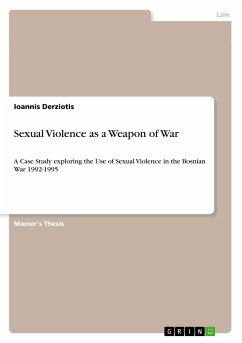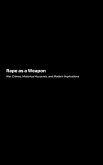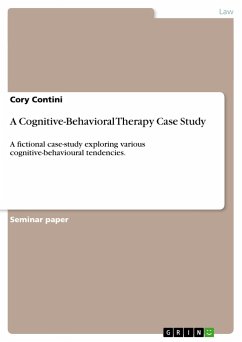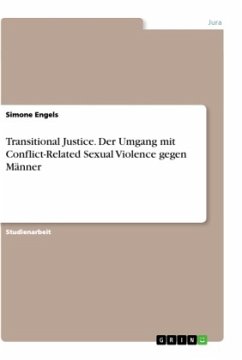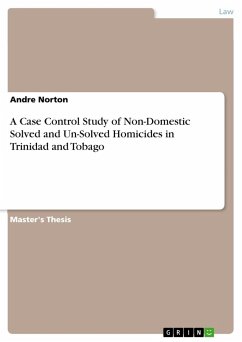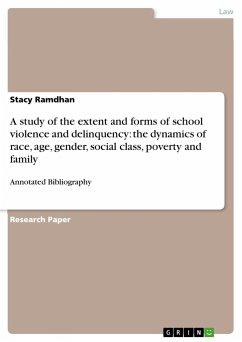Master's Thesis from the year 2016 in the subject Law - Criminal process, Criminology, Law Enforcement, grade: 2:1, The University of Surrey, language: English, abstract: On 13-15 June 2014, the largest global summit that has ever been held to end sexual violence in conflicts took place at ExCel London with the participation of 1,700 delegates and 123 country delegations, including 79 Ministers. The Summit agreed to take practical measures in order to tackle impunity for the use of sexual violence as a weapon of war and to begin changing global attitudes towards these crimes. This makes obvious that, although some progress has been made in recognizing rape and other acts of sexual violence as war crimes, the international and national response thereon remains to this day unclear and inadequate. The case of Bosnia offers a unique example to understand the systematic and organized form that sexual violence can take during war, its consequences and the steps required to prevent future crimes of such nature, as this was the first time in history that sexual violence was officially recognized as a war crime and a crime against humanity. This qualitative study explores if and how sexual violence was used as a weapon of war in Bosnia, its aim and the socio-cultural circumstances under which it took place. Drawing upon findings from six semi-structured interviews with a group of individuals who have expertise on this topic and from official documents of the ICTY, the conclusion of this research is that sexual violence was undoubtedly used as a wartime weapon by the Serbian and Bosnian Serb forces in order to achieve ethnic cleansing of-mainly- the Bosnian Muslims and the Croats. The findings also show that, even if this campaign of sexual violence was not organized by the highest levels of political and military leadership, it was definitely tolerated by them.
Hinweis: Dieser Artikel kann nur an eine deutsche Lieferadresse ausgeliefert werden.
Hinweis: Dieser Artikel kann nur an eine deutsche Lieferadresse ausgeliefert werden.

